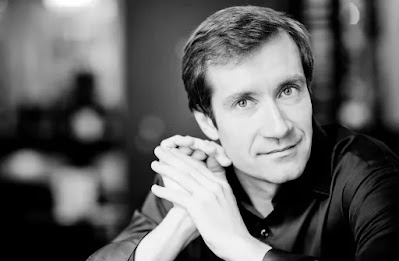American composer George Crumb (1929-2022) passed away last year, and shortly before his death, recordings from a concert of his works given in Holland in 1978 had just been rediscovered. Ensemble Dreamtiger (Kathryn Lukas (flute), Alexander Balanescu (violin), Rohan de Saram (cello), Douglas Young (piano) and James Wood (percussion)) were formed in 1973 and were dedicated to performance of new and old music from around the world, although American music featured prominently, including the music of George Crumb, and in that concert in 1978, they performed three of his works. The ensemble gave their last concert in 1989, but they have offered up these remastered recordings in tribute to Crumb. First of all is a remarkable piece, Dream Sequence (Images II), for violin, cello, piano, percussion and off-stage glass harmonica. There are four groupings here – four tuned wine glasses, percussion, piano and strings. The groups play independently of each other, so every performance will be different – a recording can therefore only be one option for performance. The ringing from the glasses goes on pretty much throughout the seventeen minutes, creating a slightly disturbing tinnitus-like effect after a while, with glassy string shimmers and insect-like slides, squeeks and birdlike pecking. Shaking bells and bowed crotales add further effects, and the cumulative effect, once you get used to the constant ringing, is definitely dream-like, with thoughts flitting in and out of consciousness. The sudden crashing piano interruption towards the end is certainly a wake-up call, before the piece ends on a single glassy note and then disappears. The three movement Sonata for Solo Cello that follows provides a welcome contrast, and is the earliest work here, from 1955. Cellist Rohan de Saram delivers the opening movements guitar-like pizzicato followed by its dramatic exposition with passionate expression, and the central movement’s set of variations on a gently swinging siciliana combines improvisatory expression with racing pizzicato and singing harmonics. After a slow introduction, the finale races off in a moto-perpetuo gallop, with only occasional halts in its insistent rhythm. The disc then ends with Vox Balaenae (‘Voice of the Whale’), an eight section work for flute, cello and piano, progressing from the beginning of time, through successive geological eras, to the very end of time. The flute opens with fluttering and singing into the instrument, evoking Andean pipe music, before the piano crashes in and then delivers Jaws-like scrapings on the strings. There is extensive use of harmonics from the cello, as well as some falling, whistling firework effects. In the later sections, the piano is used to imitate the gamelan, and high crotales introduce the final section. Like Dream Sequence, this is a haunting piece that captivates once you settle into its world, and the expressive cello and flute duet and slightly more secure harmonies that follow in the final section give some sense of resolution. This is a fascinating window on Crumb’s music, and this disc is an important record of Ensemble Dreamtiger’s relationship with the composer and performances of his work.
Mozart, W. A. 2023. Mozart: Piano Concertos, Volume 7. Jean-Efflam Bavouzet, Manchester Camerata, Gábor Takács-Nagy. Compact Disc. Chandos CHAN 20192.




.jpg)


